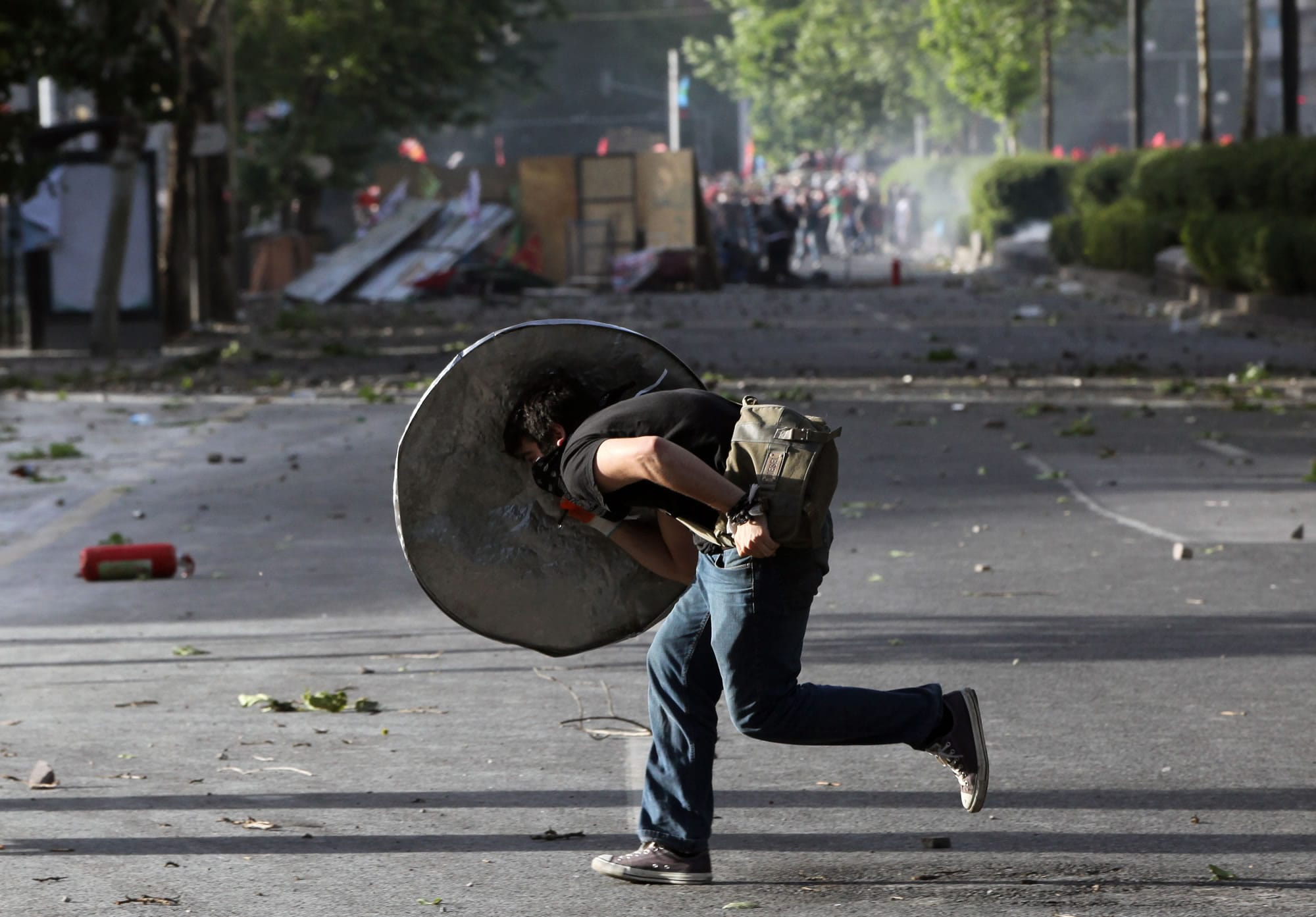ISTANBUL — Turkey’s prime minister on Sunday rejected claims that he is a “dictator,” dismissing protesters as an extremist fringe, even as thousands returned to the landmark Istanbul square that has become the site of the fiercest anti-government outburst in years.
Over the past three days, protesters around the country have unleashed pent-up resentment against Recep Tayyip Erdogan, who, after 10 years in office, is seen by many Turks as an uncompromising figure with undue influence in every part of life.
A huge, exuberant protest in Taksim Square subsided overnight, but an estimated 10,000 people again streamed into the area on Sunday, many waving flags, chanting “victory, victory, victory” and calling on Erdogan’s government to resign.
About 7,000 people took part in protests in Ankara, the capital, that turned violent on Sunday, with demonstrators throwing fire bombs and police firing tear gas. Scores of protesters were detained.



